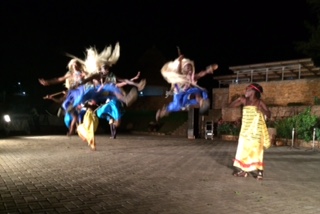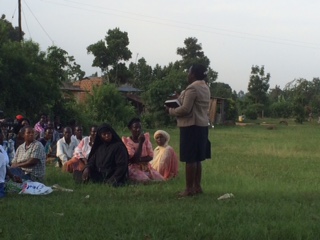Resolving Legal Claims in the Village
This has been such an amazing experience so far. I have really enjoyed both the cultural aspects of my time in Uganda and my internship with the SAFE Program. Our office is always busy and active, and there are so many projects to work on. Outside of work, we go to a lot of restaurants, visit with our neighbors and friends from work, and more.
On Sunday, we saw the Ndere Dance Troupe, a company of dancers who perform traditional dances from different regions of Uganda and surrounding countries. The performers are mostly high school and university students, and the Ndere Dance Troupe pays their school fees. The kids are amazingly talented, but I think that the best part of the show is when audience members jump up and dance with the troupe during their region’s dance. It was incredible how easily they were able to jump in and dance like they belonged.

The SAFE Program works mainly through funding sub-grantees in target regions in Uganda, whose work is aligned with the SAFE Program’s goals of building peace and providing access to justice. We have 18 active sub-grantees, and the SAFE Program works with them closely.
We went on our first field visit this week, traveling to Wakiso District to observe a “Sensitization.” During these training sessions, our sub-grantees explain certain aspects of the Ugandan legal system to people in the villages, particularly their rights relating to land and peaceful conflict resolution. During the Sensitization that we observed, SAFE Program’s sub-grantee Caritas, Justice & Peace Commission (CJ&P) began by discussing Alternative Dispute Resolution (ADR) and its benefits as compared to taking a legal claim to court. The use of ADR in village disputes allows people to resolve conflicts in a way that is cost-free, will be supported by the other members of the village, and ensures that both parties get a “something” rather than one party winning and the other losing.

The CJ&P representatives next explained the different land systems to the attendees, and their rights under each system. The most common land tenure system in Uganda is Customary Tenure, in which the person occupying the land holds no title, but their family has occupied that piece of land for a long time, and everyone in the village knows it belongs to them. Because there is no title, landowners often have difficulty enforcing their rights when they are challenged. Through the SAFE Program, we are able to help people uphold their rights in the land that they have cultivated, and that they have relied on.